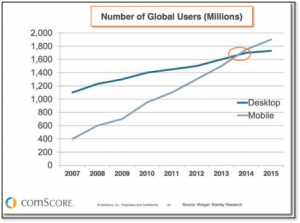Do you define your reputation, or does your reputation define you? Do you control it, or does someone else? The good news is that perception can flow in both directions – for example when a business or person works to actively curate their own reputation.
Today reputation and perception of reputation work together. How does perception influence reputation? A minor reputation problem may be magnified by a thousand search or social results and perceived as something more than it should be. The reverse can also be true. Which reputation indicators share the brightest part of the spotlight is defined by a combination of technology like search and social engines, truth, fiction, and opinion.
How to Define Reputation
What is reputation? Reputation (or repute) is the collective opinion others have of a person or an entity (such as a business).
When people talk about reputation they are usually making a decision as to trustworthiness. A good reputation is generally believed to be built on a foundation of opinions of trustworthiness and integrity.
Even though untrue, the information caught fire
But it isn’t that simply anymore because reputation has become more malleable than ever before. Armed with technology, one person can define anyone’s reputation and whether the information is fact or fiction doesn’t play a role.
Wielding Social and Search to Damage Image
For example, during the 2016 Presidential Race, a rumor was posted by someone with a Twitter account some associated with white supremacy. It claimed that Hillary Clinton and John Podesta (her campaign chairman) ran a child sex ring from a pizza restaurant and that evidence was to be found in stolen emails posted on Wikileaks. Even though untrue, the information caught fire and worked against Clinton’s campaign.

A good reputation is one that enables others to feel trust and confidence but it’s a fragile thing, easily damaged.
Whether merited or not, a person with a bad reputation may have a hard time bringing in new clients, landing a new job, building relationships with others, or even getting elected. The Clinton campaign wasn’t the first to be targeted by political opponents, it happened to Rick Santorum as well when someone likened his name to an excretion.
The more famous the person, or the bigger the company, the harder it can be to bounce back once public opinion has tanked.
Why is Reputation Important?
Robert Greene wrote in his fantastic book the 48 Laws of Power “Do not leave your reputation to chance or gossip; it is your life’s artwork, and you must craft it, hone it, and display it with the care of an artist.”
“Do not leave your reputation to chance or gossip”
Reputation doesn’t encapsulate a person’s or a businesses’ identity, it is a social opinion of that identity. The fact that reputation can shape success means it’s something worth paying attention to and worth managing.
Reputation in Business
From getting a job to obtaining the best employees reputation plays a role. Employers are increasingly searching potential hires’ names online, and it doesn’t take much to be eliminated from the candidate pool. A scandalous picture on Facebook, misguided or maligning tweets, or negative comments online all have the power to thwart a person’s success.
The same is true for business reputation because the search goes both ways. That’s right, candidates perform due diligence the other way too. Prospective employees decide whether or not to work for a company based not only on position and compensation, but how others feel about working there. The site GlassDoor.com is an example of how people rely on the opinions of strangers to decide where they want to work.
It’s more than just employees, opinions can make or break businesses. For example, online reviews are a strong indicator of others opinions whether accurate or not. Check out these statistics from BrightLocal’s 2016 Consumer Survey, for example:
- 84% of people put as much faith in online reviews as they do in offline opinions.
- 90% percent of consumers will read less than 10 reviews about a company before deciding whether to give them their business.
Almost every business will be reviewed eventually. Some industries are more susceptible to bad reviews than others. For example, mortgage lenders, debt collectors, and used car dealerships often have an especially tough time online and may want to begin improving how they’re seen online before they even open their doors for business, it’s that important.
The Evolution of Reputation
Long before the president could Tweet directly to the public or Instagram could inadvertently launch a modeling career, reputations were formed based on empirical observations in real life. In tight-knit communities how you acted, how you responded in certain situations, how you spoke and carried yourself all contributed over time to people’s opinions and eventually reputation. It may be that in these communities reputation was more accurately reflected than today. In the middle ages, most people never traveled more than ten miles from their place of birth, so people really got to know one another.
“Falsehood flies, and the Truth comes limping after it.”
– Jonathan Swift
Today, reputation has been commoditized. Jonathan Swift wrote in 1710 that “Falsehood flies, and the Truth comes limping after it.” Online reputations are far more likely to be inaccurate or sharply unbalanced due to the out sized voice naysayers have with the help of technologies that spread rumor at fiber optic speeds. The evolution of reputation is to a large part due to the combined effects of technology and human negativity bias. Negativity bias basically means that people are on the lookout for negativity. Combine this with the way search engines like Google decide whether something should be highly visible or not and you have the recipe for terrible search or social results.
In a world where search and social result visibility often trumps fact, reputation online has become more about “truthiness” than truth due to the rise of new technologies.
Business & Finance Articles on Business 2 Community(87)









